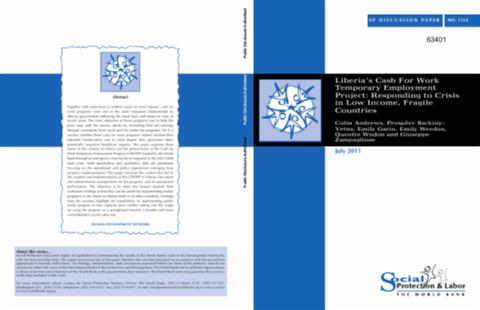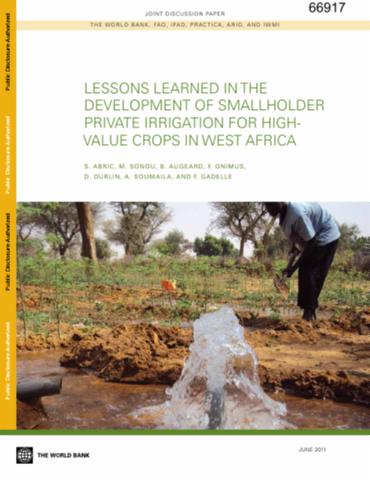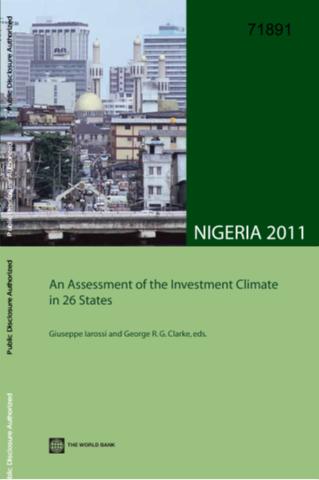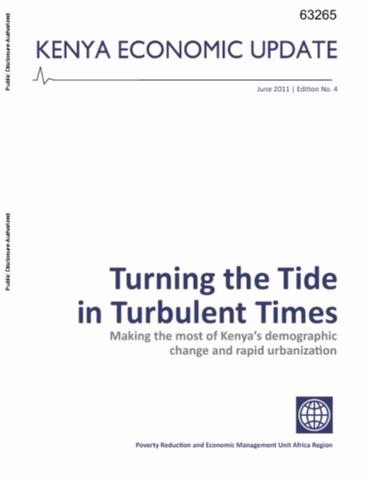The World Bank is a vital source of financial and technical assistance to developing countries around the world. We are not a bank in the ordinary sense but a unique partnership to reduce poverty and support development. The World Bank Group has two ambitious goals: End extreme poverty within a generation and boost shared prosperity.
- To end extreme poverty, the Bank's goal is to decrease the percentage of people living on less than $1.25 a day to no more than 3% by 2030.
- To promote shared prosperity, the goal is to promote income growth of the bottom 40% of the population in each country.
The World Bank Group comprises five institutions managed by their member countries.
The World Bank Group and Land: Working to protect the rights of existing land users and to help secure benefits for smallholder farmers
The World Bank (IBRD and IDA) interacts primarily with governments to increase agricultural productivity, strengthen land tenure policies and improve land governance. More than 90% of the World Bank’s agriculture portfolio focuses on the productivity and access to markets by small holder farmers. Ten percent of our projects focus on the governance of land tenure.
Similarly, investments by the International Finance Corporation (IFC), the World Bank Group’s private sector arm, including those in larger scale enterprises, overwhelmingly support smallholder farmers through improved access to finance, inputs and markets, and as direct suppliers. IFC invests in environmentally and socially sustainable private enterprises in all parts of the value chain (inputs such as irrigation and fertilizers, primary production, processing, transport and storage, traders, and risk management facilities including weather/crop insurance, warehouse financing, etc
For more information, visit the World Bank Group and land and food security (https://www.worldbank.org/en/topic/agriculture/brief/land-and-food-security1
Resources
Displaying 4591 - 4595 of 4906Liberia's Cash for Work Temporary Employment Project
Together with reductions in indirect taxes on food imports, cash for work programs were one of the main responses implemented by African governments following the food, fuel, and financial crisis of recent years. The main objective of those programs was to help the poor cope with the various shocks by increasing their net earnings through community-level work paid for under the programs. Yet it is unclear whether these cash for work programs indeed reached their intended beneficiaries and to what degree they generated other, potentially long-term beneficial impacts.
Lessons Learned in the Development of Smallholder Private Irrigation for High-Value Crops in West Africa
The objective of this report is to identify and evaluate best practices in smallholder private irrigation in West Africa. The report is based on a comparative assessment of the smallholder private irrigation subsector in Burkina Faso, Mali, Niger, and Nigeria, which included a literature review, field visits, and workshops at both national and regional levels. The task lists for the assessment is provided in annex one. This report first presents the main features of smallholder irrigation and the development projects that have promoted its use in West Africa in chapter two.
Nigeria 2011
This investment climate analysis reviews the experiences of over 3000 surveyed business owners in 26 states of Nigeria about the aspects of the business climate that affect their businesses. It complements a similar study in 2007 that covered 11 other Nigerian states. The survey asks business owners about both their perceptions and the actual costs of selected constraints. The analysis benchmarks Nigeria against comparator countries, and provides detailed data for each state. Nigerian firms have low productivity, as measured by their output in relation to their labor and capital inputs.
Kenya Economic Update, June 2011, Edition No. 4
Over the last decade, Kenya's society and economy have changed fundamentally and these deep trends will continue. Rapid population growth and urbanization will create many new challenges which need to be managed well to support Kenya's economic take-off in the medium-term. This fourth edition of the Kenya economic update argues that Kenya can turn the tide in turbulent times and make the most of the ongoing structural shifts.
Russian Economic Report, No. 25, June 2011
Russia has seen even higher oil windfall in the past few months, which translates into likely fiscal surpluses this year and next. The government should not miss the opportunity provided by a large oil windfall to substantially improve its long-term fiscal position, further reduce inflation, and, therefore, ensure a strong basis for durable stability and healthy growth in the future. Rising domestic demand and credit activity are increasingly supporting solid growth.










